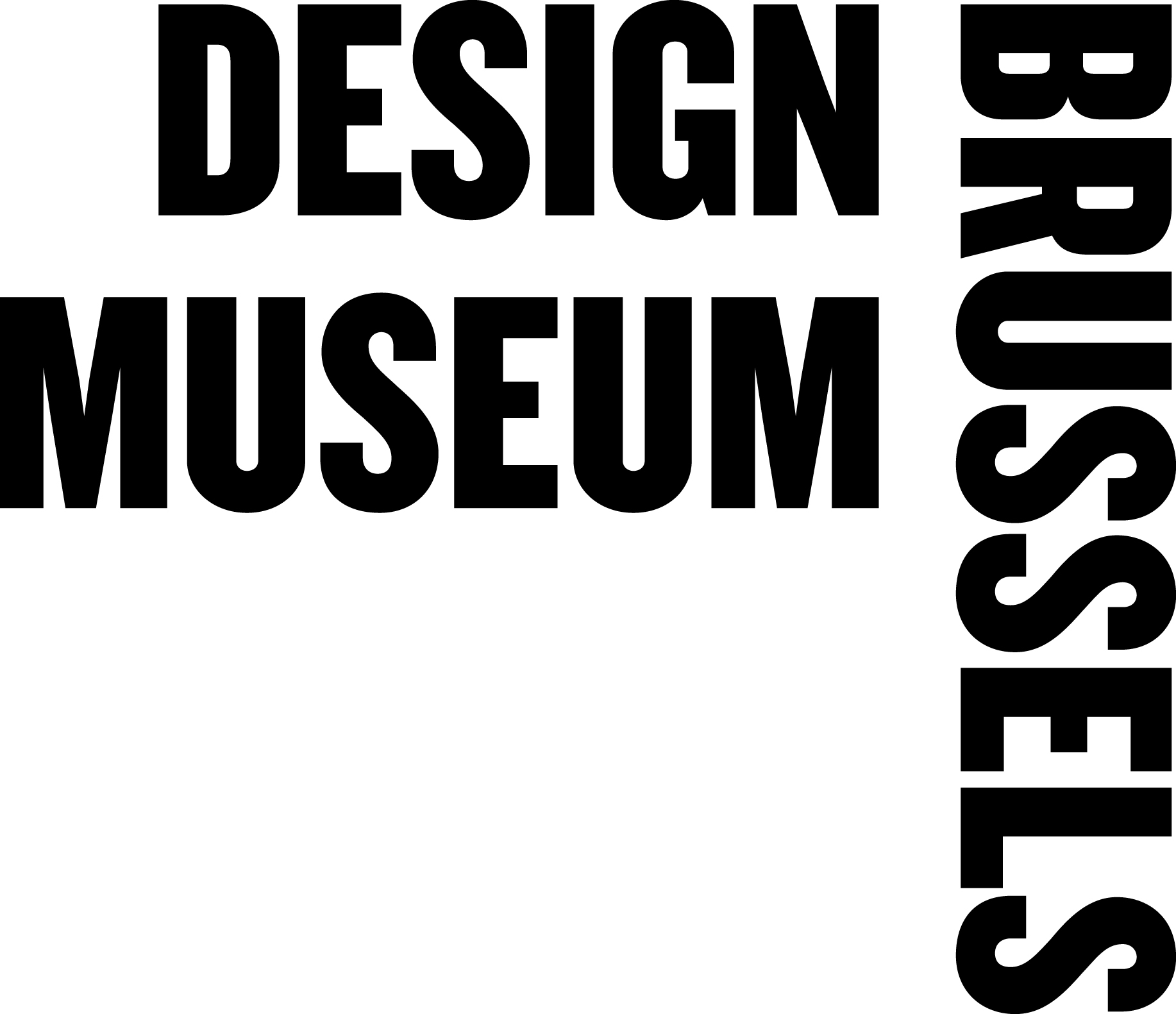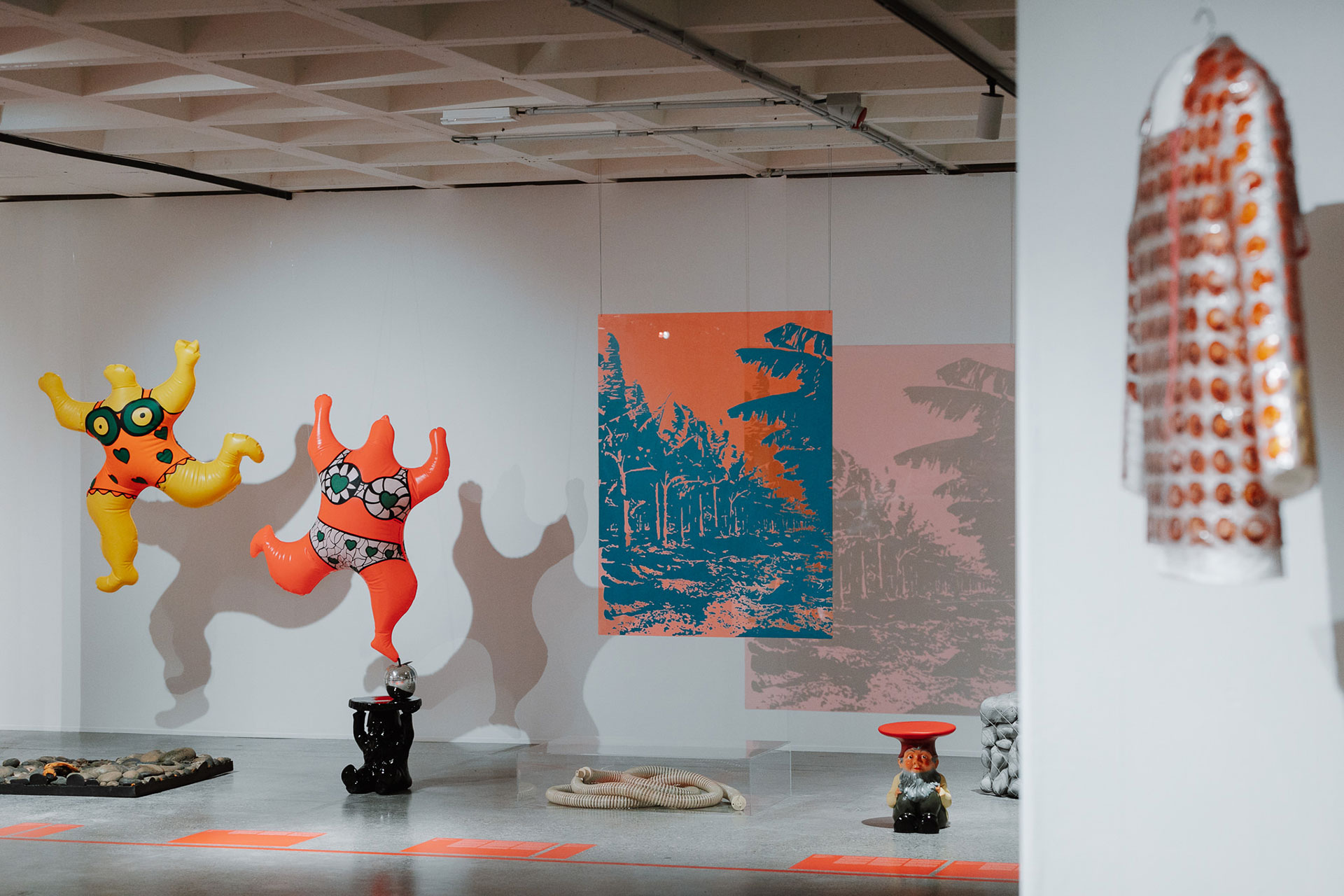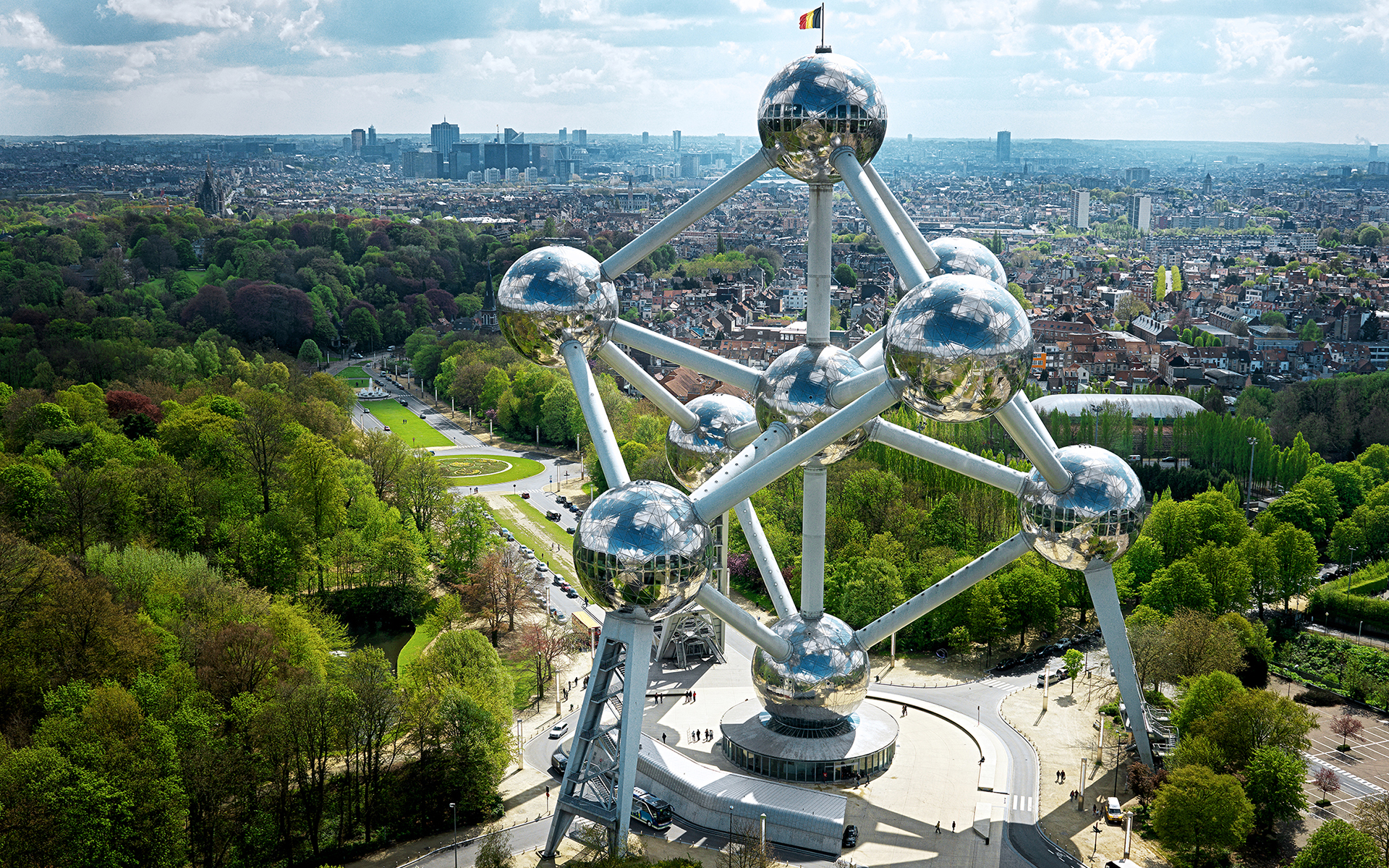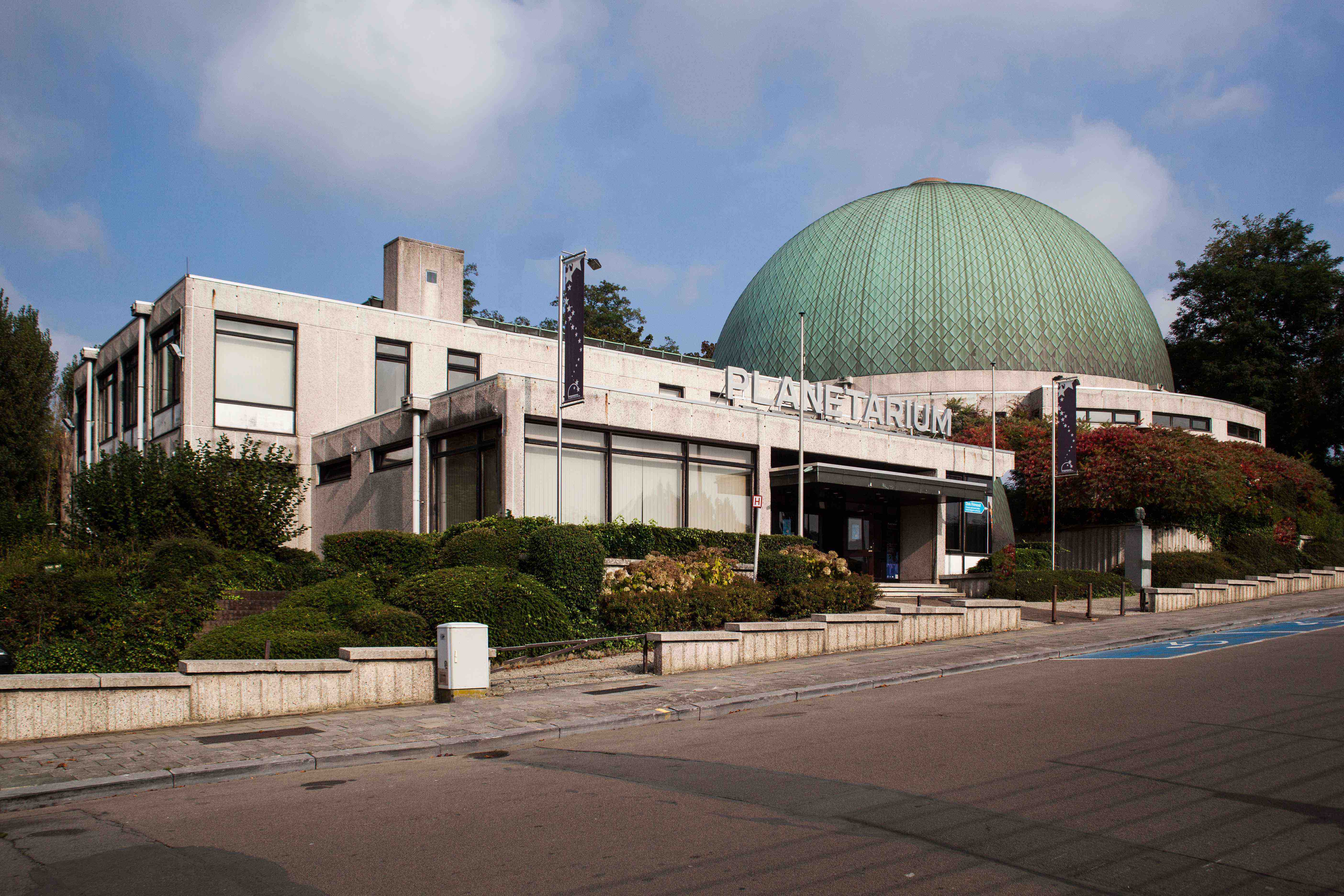Design Museum Brussels
Beyond its collections, the Design Museum Brussels aims to be a living platform for reflection and exchange. Its temporary exhibitions, along with its cultural and educational programming, express a desire to promote a transversal, inclusive, and accessible approach, crossing disciplines and perspectives. In doing so, the museum traces the cultural and technical story of the objects that have shaped our daily environments, revealing how these creations reflect the evolution of our lifestyles, values, and know-how.
From this perspective, the museum accompanies the major transitions of our time by questioning the role of design. As a place of awareness and education, it contributes to the development of critical thinking and to bringing design closer to society. It is also committed to archiving knowledge, preserving and transmitting the material and immaterial heritage of design, thereby enriching its understanding for present and future generations. By combining heritage and innovation, memory and foresight, the Design Museum Brussels asserts its mission: to make design a tool for interpreting the world and a lever for change.

- Monday : -
- Tuesday : -
- Wednesday : -
- Thursday : -
- Friday : -
- Saturday : -
- Sunday : -
- T. +32 2 669 49 29
- Place de Belgique 1 Belgiëplein - 1020 Brussels
- www.designmuseum.brussels
- info@designmuseum.brussels

The Design Museum Brussels is a place dedicated to design and its history. Come and discover all the possibilities of design creation, in all its facets, from the 20th century to the present day. And get there by train, that's class!
------------------------
Enjoy this elegant train trip at a great price: buy your tickets for the Design Museum Brussels and get a 50% discount with the Discovery Ticket!
Buy your e-ticket at https://designmuseum.brussels/ and add a free Discovery Ticket voucher to your shopping basket.
Look out for the Discovery Ticket code on your Design Museum Brussels e-ticket: it's a 16-character code.
Order your Discovery Ticket here.
Print your Discovery Ticket or show the PDF on your smartphone screen when you check in on the train.
Enjoy your journey to Design Museum Brussels!
-
Opening times
18/10/2025 - 01/03/2026: * monday, tuesday, wednesday, thursday, friday, saturday and sunday: from 11:00 to 19:00
Through the collection of the Vitra Design Museum, the exhibition Design and Comics: Living in a Box explores design and its relationship to the world of comics. To create a visual narrative that can be understood universally, comic artists have developed codes for conveying information, one of which is the placement of design objects. At the beginning of the 20th century, press agencies imposed comic strips on the American press landscape. As their popularity exploded in Europe in the 1920s, comic artists, led by Belgians such as Hergé and Franquin, began to incorporate design objects to illustrate their work. Comic artists from all over the world followed suit. In the 1930s, readers discovered the expanded format of comic strips in the form of comic books. During the 1940s and 1950s, new genres such as superheroes, horror, romance and science fiction gained in popularity. The more comics were published, the more design objects featured in their drawings. In the early 1960s, as the pop art movement took centre stage, the colourful, fantastical visual language of comic books left its mark on design, as seen in Maurice Calka’s Boomerang desk in 1969 and Eero Aarnio’s Tomato Chair in 1971. The 1970s and 1980s saw the emergence of new talents at the crossroads of design and comics, such as comic artists/designers Joost Swarte and Javier Mariscal. Today, as print versions of periodicals give way to digital formats, graphic novels and manga have become a source of inspiration for remarkable design objects such as the Manga Chairs series (2015) designed by the design studio Nendo. The exhibition Design and Comics: Living in a Box in Brussels will pay particular attention to design in Belgian comics, and more specifically to the Atom style and Franquin’s characteristic Belgian playful modernism.
-
Opening times
01/04/2026 - 20/09/2026: * monday, tuesday, wednesday, thursday, friday, saturday and sunday: from 11:00 to 19:00
As a testing ground for new materials and production processes, children’s furniture has left its mark on the history of 20th-century design. It embodies the ambitions, social changes and technological advances of its era. Gradually recognised as individuals in their own right, children are no longer seen as ‘little adults’ and have carved out a specific place for themselves in the home, society and the market. As explorers of the world, children learn, play and express themselves through the objects that populate their daily lives. After the Second World War, home design evolved: children’s bedrooms and playrooms appeared, offering young children spaces conducive to creativity and imagination. Furniture then became a tool for learning as much as a means of emancipation. Designers found children’s furniture to be a privileged field for experimentation. In the 1960s, the rise of polymers paved the way for new forms, free from traditional constraints. These materials made it possible to invent lightweight, ergonomic and playful furniture without sharp angles. Many designers embraced this field: Jean Prouvé, Alvar and Aino Aalto, Hans Wegner, Charles and Ray Eames, Nanna Ditzel, Bruno Munari, Javier Mariscal and, more recently, Stéphanie Marin, each offering a vision of childhood as a field of experimentation and freedom. In this new collaboration, the Design Museum Brussels enriches the narrative initiated by the Centre Pompidou by highlighting the Belgian contribution. Through pieces from its collections, the museum emphasises the vitality of design in Belgium, in resonance with major international narratives. It reveals an approach that is attentive to children’s needs, integrating ecological and educational issues from an early stage. From children’s bedrooms designed by Sylvie Feron in the 1930s to Jules Wabbes, to the current initiatives of the ecoBirdy duo with the Charlie chair made from recycled plastic, Belgian designers also introduce childlike singularity into the domestic space. Thus, design in Belgium reflects a creativity where formal innovation is combined with a reflection on society and the environment. Today, at a time of new environmental, social and technological challenges, children’s furniture continues to reflect its era. 3D printing, open source, recycled materials and local manufacturing herald a new generation of creative, responsible and accessible furniture. This universe remains a formidable laboratory where imagination, learning and innovation come together, reminding us that design, at a child’s level, also illuminates our common future.
-
Opening times
24/04/2026 - 25/10/2026: * monday, tuesday, wednesday, thursday, friday, saturday and sunday: from 11:00 to 19:00
In 1826, François Kemlin and Auguste Lelièvre founded the public limited company ‘Verreries et Établissements du Val Saint-Lambert’ in Seraing. The glassworks quickly benefited from considerable investment, which promoted technical progress, the growth of exports and the promotion of a young national industry. In 1879, they became Cristalleries du Val Saint-Lambert, a key player that successively bought up several glassworks and, between 1880 and 1914, enjoyed a real golden age: more than 5,000 workers, outlets all over the world and a reputation consolidated by prestigious participations in the World’s Fairs, from 1894 in Antwerp to 1925 in Paris. Throughout its existence, Val Saint-Lambert has successfully reinvented itself, navigating the Art Nouveau era, the 1930s and the post-war period by collaborating with renowned artists and designers: Léon Ledru (1855–1926), the Muller brothers (Henri Muller, 1868–1936; Désiré Muller, 1877–1952; Eugène Muller, 1883–1914), Charles Graffart (1893–1967), René Delvenne (1901–1968), Yan Zoritchak (born in 1944) and Philippe Starck (born in 1949). In 2026, Cristalleries will celebrate its bicentenary. To mark this anniversary, the Design Museum Brussels is joining forces with several museums and scientific institutions to highlight this jewel of Belgian industrial heritage and creativity. In collaboration with the Charleroi Glass Museum and curated by Catherine Thomas and Anne Vanlatum, the exhibition Val Saint Lambert & Design at the Design Museum Brussels is dedicated to the creative output of Val Saint-Lambert from the 1958 World’s Fair to the early 2000s, a period that witnessed an unprecedented creative renewal. It embodies Val Saint-Lambert’s desire to preserve craftsmanship while bringing it into the modern era and engaging in constant dialogue with design. In line with the American Studio Glass movement, it opened its doors to international artists and designers who, alongside the crystal factory’s master glassmakers, experimented with new forms and pushed the boundaries of creation. Crystal, a material that symbolises artisanal excellence, became the medium for bold creations, combining traditional know-how with aesthetic innovations. Created in 1989 under the impetus of director Patrick Depuydt, the Crystal Studio marked a decisive step in the history of Val Saint-Lambert. Through this joint exhibition, the Design Museum Brussels and the Charleroi Glass Museum invite their visitors to discover the Crystal Studio, a founding chapter in the contemporary history of glass, reflecting the dynamism, the innovation and the international influence of the Cristalleries du Val Saint-Lambert.
-
Opening times
27/11/2026 - 07/03/2027: * monday, tuesday, wednesday, thursday, friday, saturday and sunday: from 11:00 to 19:00
The Design Museum Brussels presents a unique exhibition dedicated to Pierre Lallemand, an architect and designer from the contemporary Belgian scene. Through a rich and well-documented exhibition route, visitors are invited to discover more than thirty years of creative work at the crossroads of design and architecture. Preparatory drawings, models, prototypes, objects, furniture, and experimental pieces mark the exhibition and reveal the singular universe of a creator for whom each project is a form of research in itself. The exhibition highlights a body of work in which technical rigour is in constant dialogue with formal freedom, as well as with a critical reflection on our built environment. Trained in Brussels at the end of the 1970s, Pierre Lallemand developed an early, highly personal approach to design, shaped by experimentation, attention to detail, and a direct relationship with manufacturing. The first part of the exhibition looks back at his beginnings on the Brussels scene of the 1980s, notably through his first lighting designs shown at Galerie Théorème. These pieces already demonstrate an interest in hybrid objects, oscillating between function and sculptural expression. The exhibition then explores the international dimension of his career. Visitors discover how his experiences in Italy, within the Milan-based firm BBPR, and later in the United States working with César Pelli, profoundly influenced his way of thinking about space, from furniture to architecture, from object to city. This global vision is reflected in the wide variety of projects presented: bicycles, sailboats, sculptures, furniture and architectural studies. Throughout the exhibition, a coherent and committed approach emerges, in which each work is conceived as an act of visual thinking. For Pierre Lallemand, designing means questioning form, use, and the poetic dimension of the objects that surround us. The Design Museum Brussels offers an immersive journey into a body of work in constant motion, shaped by the technical, urban, and cultural challenges of our time, and invites visitors to (re)discover design as an open, experimental field, deeply connected to the way we inhabit the world.









